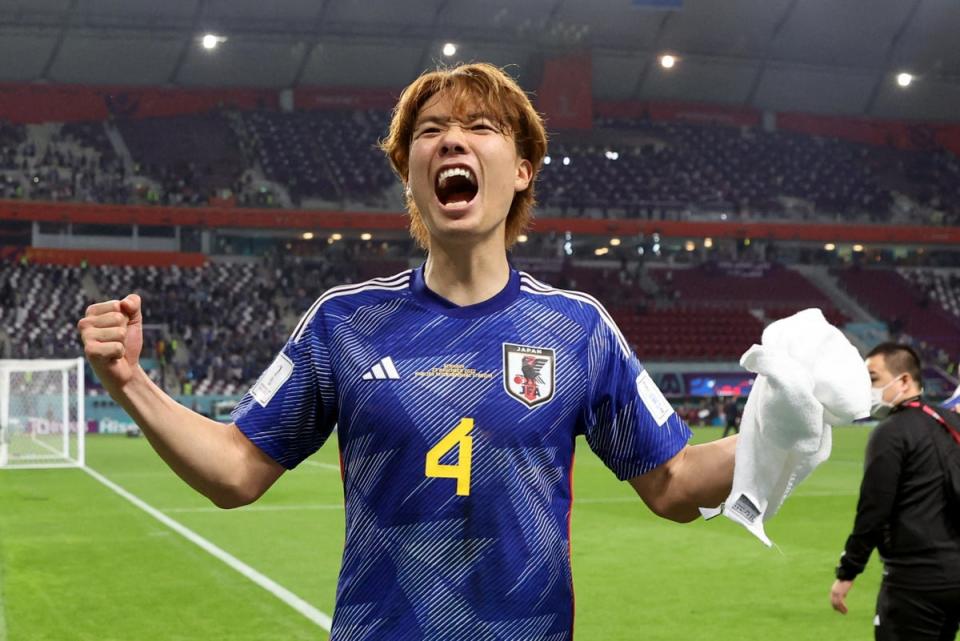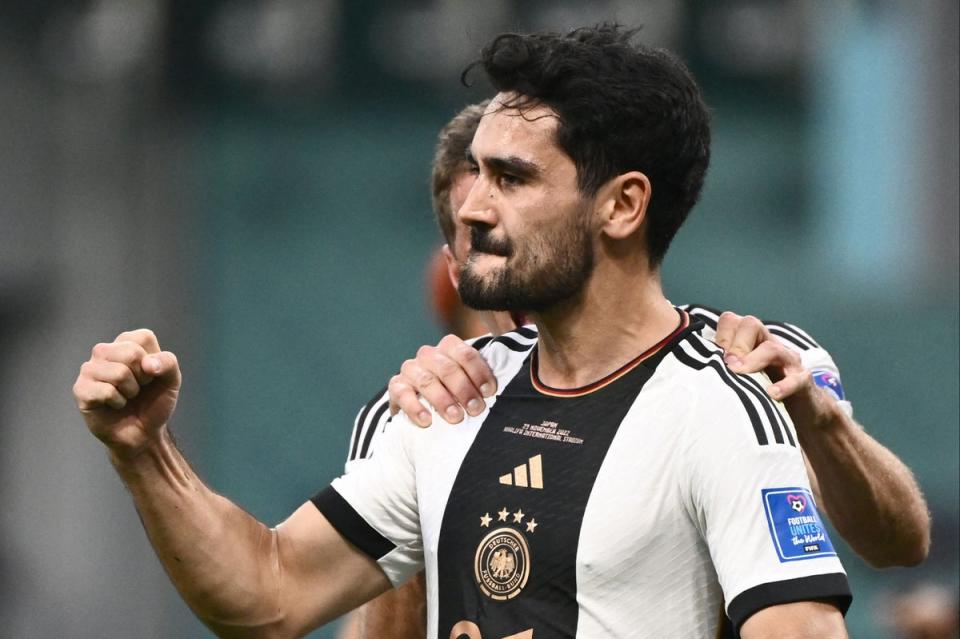Germany 1-2 Japan: Famous comeback win shocks Die Mannschaft as World Cup woes continue in Qatar

It is difficult to recall a World Cup build-up with less talk of Germany as contenders and, as Group E got underway, Hansi Flick’s side announced their arrival in Qatar with a statement rebuke of Fifa’s bizarre cowardice - then produced a performance that showed exactly why, as they were stunned by Japan.
After the disaster of a group-stage exit as defending champions in Russia four years ago, this was supposed to be the afternoon normal German World Cup service resumed, and it looked on course to after Ilkay Gundogan’s first-half penalty.
Late goals from Ritsu Doan and forgotten former Arsenal man Takuma Asano, however, turned the game on its head and, in a group that also includes Spain, has the four-times winners already left with little margin for error.
Up until a ball was kicked at the Khalifa International Stadium, there was plenty to admire about the Germans, who did not take Fifa’s One Love armband nonsense lying down.
For some reason terrified by the prospect of a few footballers wearing a rainbow-coloured bit of cloth around their arms, football’s global governing body have succeeded in turning a relatively minor gesture into a full-blown storm.
The Danish FA have been forced to deny reports they are considering leaving the organisation altogether, while Germany’s are taking a legal case against Fifa to the Court of Arbitration for Sport.
Their players here warmed up in plain white training tops with rainbow-striped sleeves, then covered their mouths during their pre-match photographs, the implication clear.
“Together with other nations, we wanted our voice to be heard,” an FA statement read. “It wasn’t about making a political statement – human rights are non-negotiable. Denying us the armband is the same as denying us a voice.”
England’s players faced criticism - some bombastic and predictable, some more measured and fair - for bowing to the tame threat of a yellow card in backing out of wearing the armband against Iran on Monday, and will no doubt now be unfavourably compared to the Germans for not coming up with some alternative protest of their own.

Any ire, though, would be best directed at Fifa, whose pathetic stance has now placed them at the centre of a row not only over human rights and the host nation’s appalling treatment of the LGBTQ+ community, but over freedom of expression and the gagging of the very players upon whose profiles it and the sport relies, as well. It is quite some going.
And so, when the game began, Germany had little choice but to let their football do the talking. Unfortunately for them, it did so with a stammer.
Gundogan’s opener came midway through the first-half after David Raum had been fouled in rather comical fashion by Japan ‘keeper Shuichi Gonda but that goal, along with the performance of teenager Jamal Musiala on World Cup debut, would provide one of few positives for Flick in his first major tournament game as head coach.
Flick replaced long-time chief Joachim Low following last summer’s Euros but the initial optimism brought by eight straight wins against poor opposition has faded after a grim Nations League campaign in which they did not even beat England. Flick’s most recent eight matches had brought only two wins, one of those in a warm-up against Oman.
His side might have been out of sight had Musiala been able to keep his shot down after beating four men, or if Gundogan’s placed effort from the youngster’s lay-off clipped the inside rather than outside of the post.
The greatest day in Japan's football history 🙌
You love to see it 🇯🇵 pic.twitter.com/wc1zWghZGX— ITV Football (@itvfootball) November 23, 2022
Germany had the better of the possession and the chances, but lacked a clinical touch, as they continue to try to make do without a specialist centre-forward. Japan, though, always looked a pacey threat on the break and Germany’s backline too easily exposed. Behind them, Manuel Neuer, playing in his fourth World Cup, looked as good as ever when making a sensational one-handed stop from Junya Ito but was beaten twice soon after.
First, former Liverpool forward Takumi Minamino’s shot was parried into the path of Doan to score, then Asano lifted a superb finish high past the giant frame of Neuer from a tight angle with seven minutes to play. To add insult to injury, both players play their club football in Germany.
Flick grew desperate and threw on Mario Gotze for his first World Cup appearance since scoring the goal that won the whole thing eight years ago, as well 18-year-old forward Youssoufa Moukoko, the youngest German to ever play in the competition.
On the pitch, his players were in the same boat as Antonio Rudiger took one of his trademark pot-shots from 40 yards, while Manuel Neuer went up and stayed up for a string of late set-pieces without success.

 Yahoo Sport
Yahoo Sport 





































